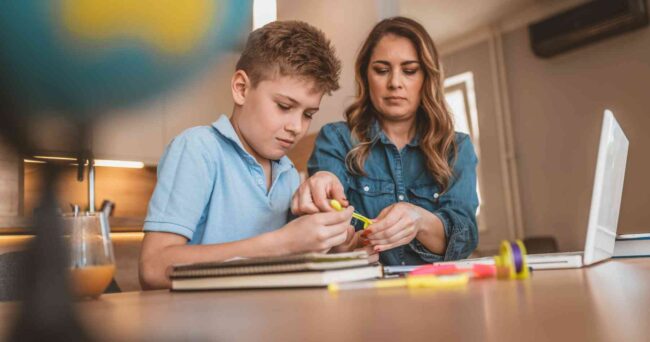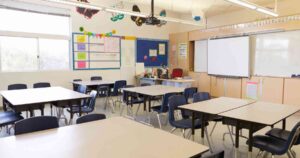Welcome to a detailed exploration of the top 10 advantages of private school education. Choosing the right educational institution for your child is a crucial decision that significantly impacts their growth and development. Private schools provide a unique environment that fosters academic excellence, character development, and individual growth. In this article, we will delve into the numerous benefits that private schools offer to students, ranging from personalized attention to specialized programs that prepare them for a successful future.

Top 10 Advantages of Private School Education:
1. Personalized Attention:
At the heart of private school education is the commitment to tailored instruction. With smaller class sizes, educators can focus on each student’s individual needs, strengths, and areas for improvement. This personalized attention cultivates a deeper understanding of subjects and allows educators to adapt teaching methods to suit diverse learning styles.
2. Academic Excellence:
Private schools maintain rigorous academic standards that challenge students to excel. The emphasis on critical thinking, research skills, and problem-solving equips students with a strong academic foundation. These high standards often lead to better college and career opportunities for graduates.
3. Enriched Curriculum:
Private schools often offer a diverse and enriched curriculum that goes beyond the standard subjects. From advanced STEM programs to fine arts and humanities, students have the chance to explore a wide range of disciplines, fostering a well-rounded education.
4. Nurturing Environment:
Private schools prioritize creating a safe, inclusive, and nurturing environment. This atmosphere promotes positive peer relationships, self-confidence, and emotional well-being, allowing students to thrive academically and socially.
5. Dedicated and Qualified Faculty:
Private schools attract educators who are not only highly qualified but also deeply passionate about teaching. These dedicated teachers inspire students to think critically, engage in meaningful discussions, and pursue their academic interests.
6. Small Class Sizes:
Smaller class sizes in private schools facilitate more interactive and engaging learning experiences. Students can actively participate in discussions, collaborate on projects, and receive individualized feedback from their teachers.
7. Advanced Resources and Facilities:
Private schools often invest in state-of-the-art resources, including cutting-edge technology and modern facilities. These resources enhance the learning experience, enabling students to explore subjects in-depth and engage in hands-on activities.
8. Extracurricular Opportunities:
Private schools offer a wide range of extracurricular activities, from sports and arts to debate clubs and community service. These opportunities not only help students discover their passions but also develop teamwork, leadership, and time-management skills.
9. Strong Parent-Teacher Partnerships:
Private schools encourage active involvement from parents in their child’s education. Regular communication, parent-teacher conferences, and collaborative initiatives create a strong partnership that supports students’ academic and personal growth.
10. College Preparation:
Private schools are renowned for their commitment to preparing students for college and beyond. Specialized guidance counselors, test preparation programs, and tailored college application support ensure that students are well-equipped to pursue higher education.

Exploring the Advantages at Riverside College:
As we conclude our exploration of the top 10 advantages of private school education, let’s take a closer look at how these benefits manifest at Riverside College, a prominent example of a private educational institution. Riverside College embodies the core principles we’ve discussed, offering a unique and enriching experience for students and parents alike.
Personalized Attention: Riverside College’s commitment to individualized instruction is evident through its small class sizes. With a low student-to-teacher ratio, educators at Riverside can tailor their approach to cater to each student’s learning style and needs.
Academic Excellence: The rigorous curriculum at Riverside College focuses on cultivating critical thinking and problem-solving skills. The school’s dedication to academic excellence prepares students not only for success in their current studies but also for future endeavors.
Enriched Curriculum: Riverside College provides a diverse range of subjects and activities, ensuring that students receive a well-rounded education. From science and technology to arts and culture, students have the opportunity to explore their passions.
Nurturing Environment: The inclusive and supportive atmosphere at Riverside College fosters a sense of belonging and emotional well-being. This nurturing environment empowers students to grow academically and personally.
Qualified Faculty: The educators at Riverside College are not only highly qualified but also deeply passionate about their roles. Their dedication to teaching reflects in the holistic development of their students.
Small Class Sizes: Riverside’s commitment to small class sizes allows for interactive and engaging lessons. Students can actively participate in discussions, fostering a deeper understanding of the subjects.
Advanced Resources: Riverside College invests in modern resources and facilities, creating an optimal learning environment. This enables students to engage in hands-on learning experiences and explore subjects in depth.
Extracurricular Opportunities: The range of extracurricular activities at Riverside College encourages students to discover their interests outside of academics. These activities promote teamwork and leadership skills.
Parent-Teacher Collaboration: Riverside College values parent involvement and maintains open communication with parents to ensure students’ well-rounded development.
College Preparation: With dedicated guidance counselors and college preparation programs, Riverside College equips students with the tools they need to succeed beyond their school years.
As you consider the advantages of private school education, Riverside College serves as an exemplar institution that aligns with the principles we’ve explored. Its commitment to holistic growth, academic excellence, and nurturing environments make it a prime choice for parents seeking the best education for their children.
In conclusion, the journey of private school education offers a wealth of benefits that shape students into well-rounded individuals. From personalized attention to the rich curriculum and preparation for the future, these advantages lay the foundation for success. By making an informed decision and choosing an institution like Riverside College, you can provide your child with an educational experience that sets them on the path to a promising future.
FAQs:
Are private schools only for academically gifted students?
Private schools welcome students of various abilities and backgrounds. They provide individualized attention and support, helping each student reach their full potential.
Do private schools offer financial aid options?
Yes, many private schools offer financial aid, scholarships, or tuition assistance to ensure that a diverse range of students can access quality education.
How do private schools promote character development?
Private schools often integrate character education into their curriculum, emphasizing values such as respect, integrity, and responsibility through various activities and programs.
Are extracurricular activities mandatory in private schools?
Participation in extracurricular activities is typically encouraged but not mandatory. These activities provide students with opportunities to explore their interests beyond the classroom.
Do private schools have a diverse student body?
Many private schools value diversity and strive to create an inclusive environment that welcomes students from different cultural, socioeconomic, and ethnic backgrounds.
How can I find the right private school for my child?
Researching and visiting different private schools, understanding their educational philosophy, and considering your child’s needs and preferences can help you make an informed decision.
Embarking on the journey of private school education offers numerous advantages that contribute to your child’s holistic development. From personalized attention to a well-rounded curriculum and a nurturing environment, private schools are dedicated to shaping well-prepared, confident, and engaged individuals. By understanding these advantages, you can make an informed choice that sets your child on a path to success.























